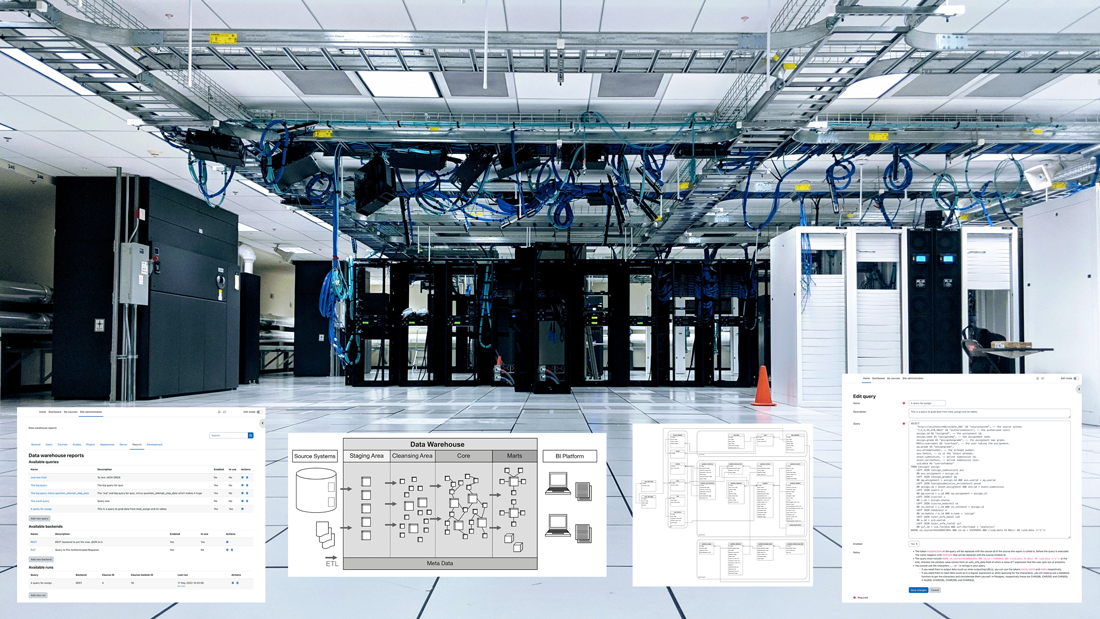How to design an extensible data warehouse – Set a foundation to transfer custom log data out of a LMS to a data warehouse in order to empower researchers to perform learning analysis
Allow versatile Learning management system → Data warehouse data exchange

Topic
This Master's thesis examines the design of an extensible data warehouse capable of receiving custom data from a Learning Management System (LMS), as well as the tools necessary to send out such data, in order to support learning analytics. It covers the foundational elements of the design including database queries, data warehouse set up, and security and privacy precautions. The findings provide a blueprint for a data warehouse able to receive information from any connected Moodle system that allows researchers to extract, store, and analyze data for investigations into learning and educational activities.
Relevance
Higher education institutions do widely use Learning Management Systems’ (LMS). Thereby, by the LMS’ logging and storing functions, retained data is collected, which generally remains solely inside the systems and is only sporadically taken into consideration for analysis, since it is stored in such a way that it cannot be analyzed out-of-the-box. If there was a data warehouse solution alongside extract-transform-load processes to be fed with the data out of the Moodle LMS, that would create an enormous value for the research community.
Results
Using an experimental method, this thesis reaches both the instruments on the side of the LMS and the tools necessary to build and maintain a data warehouse. Versatility is guaranteed on both sides, so that the solution can be adapted and extended at any time, and aspects of data protection and privacy have been taken into account. The export of data from the LMS and its transfer to the data warehouse was successfully created.
Implications for practitioners
- Facilitating Educational Data Mining (EDM).
- Possibility of arbitrary data export tailored to individual needs.
- Cleansed data availability in a data warehouse.
- Data security and access preserved – possibility of opt-out for students not wanting to share.
- Heterogeneous setup: a data warehouse can receive from different LMSs, a LMS can export to different data warehouses.
Methods
The researcher used an experimental approach and first familiarized himself with the practice and theory of data warehouses and gained knowledge about the transferal and modeling of data. Then, in two attempts, he designed ways of extracting data from a LMS, first only for the quiz activity and then for general use, with the necessary queries, transfer methods and the processing on the (Oracle Cloud Autonomous Database) data warehouse side. The resulting database code and functionality plugin are publicly available as v3 GNU free and open source software.
